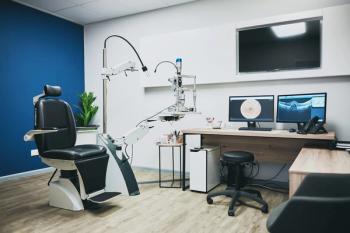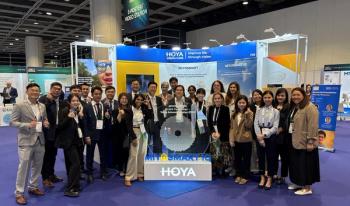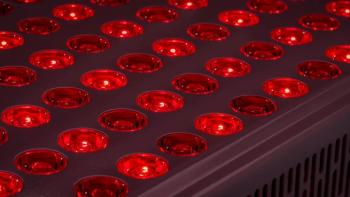
Study: coefficient of friction of 1-Day Acuvue TruEye, Acuvue Oasys comparable to human cornea
According to research presented at the 2014 British Contact Lens Association Clinical Conference, found the coefficient of friction of the 1-Day Acuvue TruEeye and Acuvue Oasys brand contact lenses were comparable to that of the human cornea.
Birmingham, UK-According to research presented at the 2014
The study tested the coefficient of friction on 1-Day Acuvue TruEeye silicone hydrogel (narafilcon A) and Acuvue Oasys silicone hydrogel (narafilcon A) directly out of the package using a micro-tribometer in a tear-like fluid with phosphate buffer saline. The applied normal force varied between 0.25 and 4.0 mN with a measured stroke length of 1.0 mm at normal blink speed of 0.1 mm per second. A mucin-coated glass disc was used as counter surface mimicking the inner eyelid. A simulated aged cycling (18-hour) of the contact lenses was also completed using the same measurement methodology. The results were compared to the
According to the study, “the 1-Day Acuvue TruEye LS mean (SD) 0-hour CoF was 0.0080 (0.001140) (N=13) and 0.0098 (0.002055) at 18-hour (N=4). Acuvue Oasys LS mean (SD) 0-hour CoF was 0.0104 (0.001300) (N=10) and 0.0116 (0.001300) at 18-hour (N=10). The CoF of human corneal tissue is 0.0153 (0.002974).”
“This is important because coefficient of friction has previously been shown to be one factor highly correlated with contact lens comfort. 1-Day Acuvue TruEye and Acuvue Oasys seem to mimic corneal properties that may help address end-of-day comfort for many of our patients,” says Tawnya Wilson, OD, principal research optometrist at Johnson & Johnson Vision Care.
Newsletter
Want more insights like this? Subscribe to Optometry Times and get clinical pearls and practice tips delivered straight to your inbox.





























